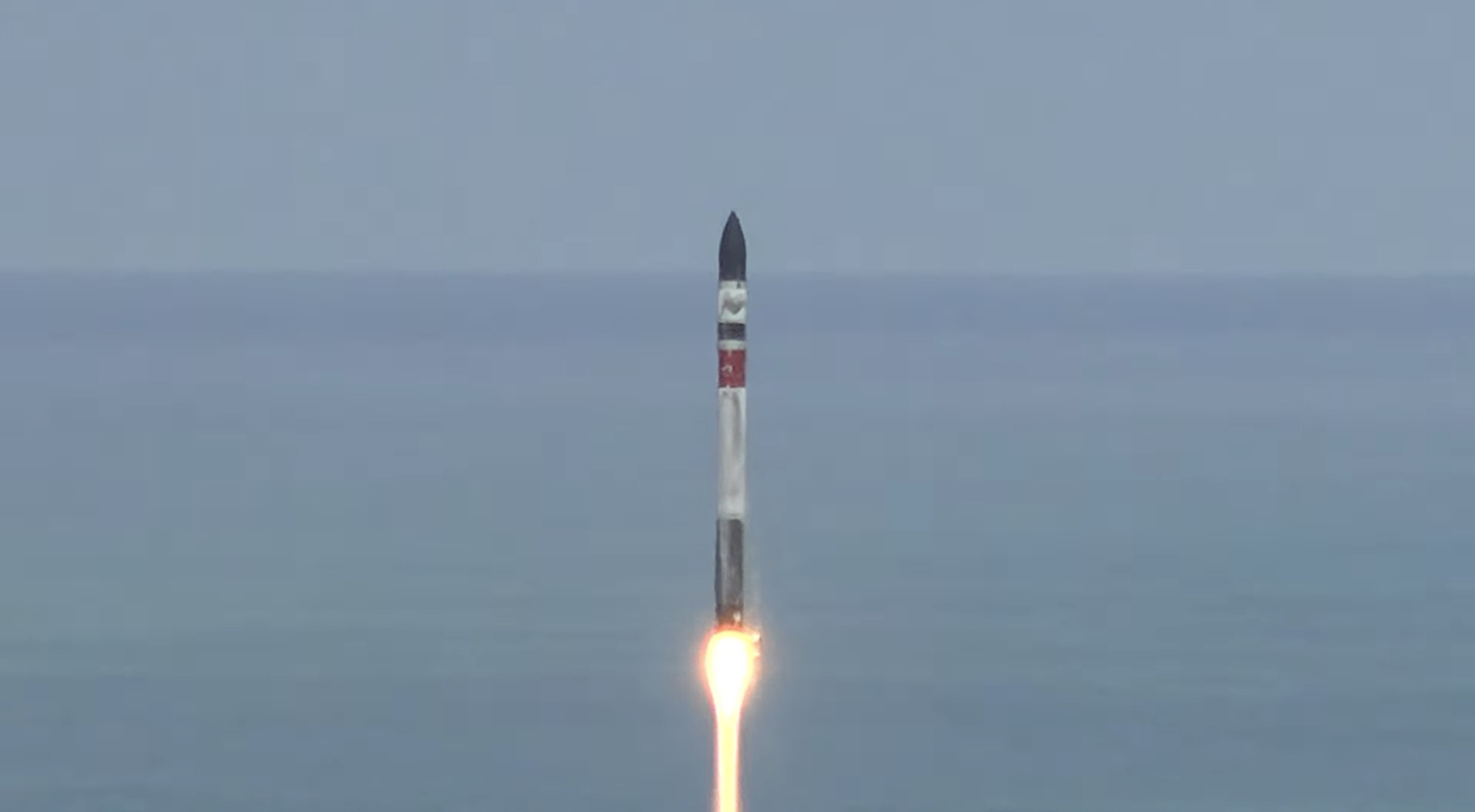WASHINGTON — Rocket Lab successfully reflew an engine on an Electron launch Aug. 23 as the company moves a step closer to reusing the entire rocket booster.
The Electron rocket lifted off from the company’s Launch Complex 1 in New Zealand at 7:45 p.m. Eastern. The “We Love the Nightlife” mission deployed a Capella Space radar imaging satellite into a 640-kilometer mid-inclination orbit 58 minutes after liftoff.
The launch was originally scheduled for July 30 but scrubbed because of data from a sensor in one engine that indicated low igniter pressure. A second attempt on Aug. 6 was also scrubbed.
Rocket Lab decided to replace the entire booster with one that the company had just completed. The new booster, unlike the original one, was designed for recovery.
“The call was made to bring forward that recovery booster and swap the payload onto this Electron to tighten the turnaround to get back to the pad for Capella and accelerate our efforts to make Electron a reusable rocket at the exact same time,” Rocket Lab spokesperson Murielle Baker said during the launch webcast.
The booster not only was designed for reuse but also, among its nine Rutherford engines, was one that had flown on an Electron launch in May 2022. The engine had gone through what Rocket Lab described as multiple full-duration hotfire tests to confirm it could be flown again.
“The data is in, perfect performance from the reused engine and the stage,” Peter Beck, Rocket Lab chief executive, tweeted after the launch.
During an Aug. 8 earnings call, Beck suggested that reflying a Rutherford engine, then scheduled for some time before the end of the year, was one of the final steps before the company is ready to reuse an entire booster.
“From there we’ll schedule the first reflight of a full stage booster,” he said in the call, but did not offer a timeline for doing so beyond noting that additional improvements to support reusability were planned for the 45th flight of the vehicle.
This launch, the 40th for the Electron, carried the first of Capella’s Acadia line of synthetic aperture radar imaging satellites. Those satellites will offer increased image resolution and quality, as well as improved communications for both tasking the satellites and downlinking imagery.
The launch was the first of four Electron missions carrying Acadia satellites under a contract between Rocket Lab and Capella Space announced in February. Those launches will take place in “rapid succession,” the companies said then, but did not disclose a more specific schedule.
This was the eighth Electron mission of 2023, including one launch of the suborbital version of Electron called HASTE. In the earnings call, Rocket Lab continued to forecast conducting 15 Electron launches this year.
“I can’t believe we’re at flight 40. Honestly, it feels like flight 1 was just a few weeks ago,” Beck said in a video during the launch webcast. That first Electron launch took place in May 2017. “I can’t wait for 80 and beyond.”
